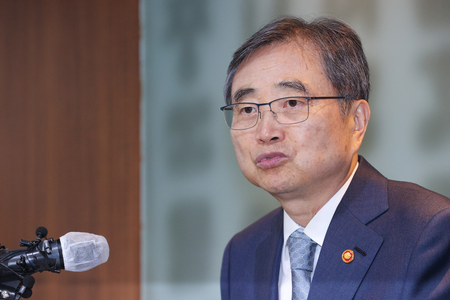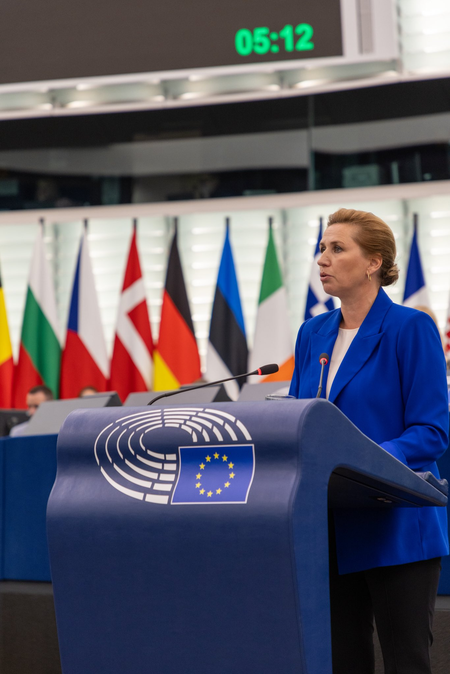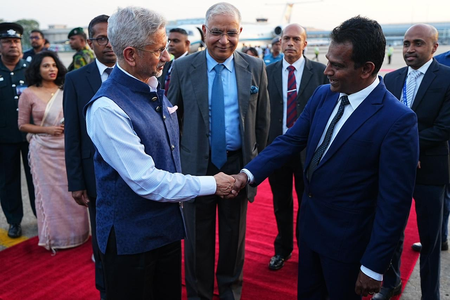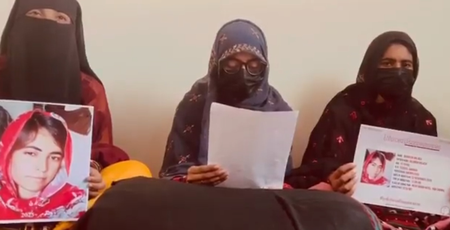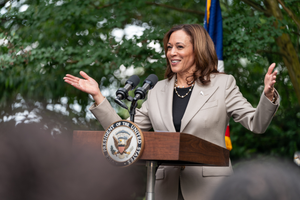
New York, July 22 (IANS) US Vice President Kamala Harris has amassed nearly unshakeable support for her to become the Democratic Party’s presidential candidate and as the election looms just 105 days away, the party’s challenge now is to find a mechanism to quickly make her nomination official.
By Monday morning, she had the endorsements of more than half the party’s members of Congress and almost half the party’s Governors, according to a tally by Politico.
With that level of support, a credible challenge to her appears unlikely but the party is racing through uncharted territory to get her nomination through and get on with the campaign against Republican rival, Donald Trump.
Democratic National Committee Chair Jaime Harrison acknowledged in a statement on Sunday that the situation facing the party is “unprecedented”, but promised “a transparent and orderly process” to select the candidate to challenge Trump.
Harrison did not explain what the process would be because he would first have to find a consensus – or at least a semblance of one – to keep the party together.
Harris herself has said that her “intention is to earn and win this nomination”, implying that she would not prefer “coronation”, and she will have to find a way to demonstrate that she has.
According to media reports, soon after President Joe Biden announced he was dropping out, Harris furiously worked the telephone calling scores of party leaders and that paid off.
In the House of Representatives 153 of the 212 Democratic members have endorsed her, and so have 32 of the 47 party Senators and 12 of the 23 Governors, according to Politico. That assures Harris of the nomination.
She has the support of former President Bill Clinton and his wife Hillary, among the party’s elders.
But former President Barack Obama hasn’t, saying instead: “I have extraordinary confidence that the leaders of our party will be able to create a process from which an outstanding nominee emerges.”
The other member of the party’s quartet of elders, former Speaker Nancy Pelosi is also holding back for now along with the Democratic Party Senate leader Chuck Schumer and House leader Hakeem Jeffries – probably to avoid giving the impression that Harris is being imposed by fiat.
Biden has swept the party primaries and caucuses winning 3,896 delegates to the convention, far more than the 1,976 needed for the nomination, with 36 delegates declaring themselves as uncommitted and seven going to others.
Although he has endorsed Harris, he cannot transfer his delegates to her and they would be free to vote for whom they liked.
The party’s convention where it would officially nominate its candidate is barely a month away – from August 19 to 22 in Chicago – but with just three and a half months to go for the election, the party can hardly wait till the convention as it will lose almost a month of campaigning.
The party was facing a tighter deadline under Ohio rules which required a party candidate to be in place before August 7 to be on the ballot, but a new legislation extended the deadline to the end of the month.
The party had planned to hold a roll-call vote before the August 7 deadline to confirm the candidate, but even after the extension, there was a push to go ahead with the virtual poll to avoid any legal challenges.
It may decide to go through with it seal the deal and get on with the task of taking on Trump.
A formidable task ahead for Harris is choosing quickly a Vice President who balances her ticket within the party and among the electorate at large with its pulls of identity politics, region, and ideology.
Time is also a factor here as the candidate would have to be vetted adequately to avoid a debacle the party faced in 1972 when Thomas Eagleton had to drop out as the Vice Presidential nominee because it was discovered that he had mental health issues.
Harris’s strongest point is that she can automatically access the $240 million in campaign funds that Biden has amassed, which cannot be transferred directly to any other candidate — and the war chest is growing with nearly $50 million pouring in just on Sunday.
As the Vice President she has high national visibility, was apprenticed in the Oval Office, and can take credit for the Biden administration’s achievements.
On the other hand, she is also weighed down by the shortcomings – real and optical – of the Biden-Harris Administration as it is officially called.
Trump said it wouldn’t matter who the Democratic candidate would be as he will be running against the Biden record.
Harris’s dismal performance when she tried to run for President could be a negative: After announcing her candidacy for the Democratic Party nomination in 2015 and launching her campaign, she dropped out of the race even before the first primary.
The fact that she could not garner enough support within the party for even a credible run for nomination also raises questions about her viability, but her stint as Vice President could have erased it.
As a woman of Indian (or broadly Asian) and African descent, she can also re-energise those segments of the party base that have shown signs of becoming lukewarm.
The only glimmer of a challenge comes from an outlier, Joe Manchin, a maverick Senator who quit the Democratic Party and is now an independent.
Donna Brazile, a former party chair, told ABC News that he had called her asking about the nomination process and she had to remind him that he would have to be a party member to run.
As a right-of-centre politician, he could make inroads into Trump’s support and hold the Democratic Party’s left, which detests Trump more than Manchin.
(Arul Louis can be contacted at arul.l@ians.in and followed at @arulouis)
–IANS
al/vd

